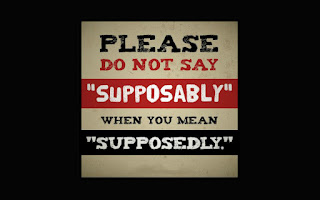The trend of Pen Pals started during the 1930s. But the second World War came in 1939, and many of those Pen Pals disappeared--moved or died, never to be active again. Once it ended in 1945, life settled down at last.This story caught my eye about Pen Pals. Carole Lechan of Massachusetts and Jane Anderson of New Zealand have been pen pals since they were nine years old. Last week, after 56 years of writing, they finally met.
RACHEL MARTIN, HOST, as printed in NPR (National Public Radio):
Back in 1959, a little girl from Queens, N.Y, sent an airmail letter to another little girl in Sefton, New Zealand. The New Zealander wrote back. And the two began a correspondence that has lasted for 56 years. The two lifelong pen pals never met until last week. When Carole Lechan and Jane Anderson spotted each other at Logan Airport in Boston, they each smiled and locked arms in a huge embrace. Five decades after they first began writing, Anderson had finally come to find Lechan, who now lives in Massachusetts.
The old friends told The Boston Globe that they wrote each other five or six times a year, sending letters written in longhand that could take weeks to reach their destination. Carole Lechan said, quote, "when someone writes you a letter, you are bound by responsibility and courtesy to respond. So we just kept writing."
The two had updated their correspondence to email in recent years. But as strange as it may seem, they had never even spoken on the phone. I was just really surprised she would make this investment to come see me, Lechan says. But we're not getting any younger. And this is the time to do it.
I read those words and they seemed unlikely to happen to me. One in 100 million, I thought. But I have a Pen Pal now, too.
I never met her. We never talked on the phone. But in late Spring of this year, she inquired where she can find a copy of my book, The Tales of a Stroke Patient. Or she read my blog, The Tales of a Stroke Patient and More. I can't remember. It's as if she has always been here. Her name is Sara.
And so it began. I worry about Sara. She worries about me. I get her misery; she gets mine. We email or text, sometimes both, almost every day. She knows my children's names; I know hers. I know her husband's name; and I am happily divorced. I know her favorite things; she knows mine. But at the crux of it, why are we so connected? We are both stroke survivors.
There was something about Sara that charmed me. So I sent her my book after she gave me her address. She has favorable qualities--smart, friendly, attentive. I convinced her to join my Zoom support group so we could look at each other.
She was thinking of writing a book and her stroke misadventures. When I wrote my book, in the dusty back room of my ex-partner's house, he was always upstairs, I later knew, partly to escape me. I believe I repulsed him because the roles were reversed, much to his disdain, and I couldn't do the things I once did like go market shopping, help with the gardening, prepare meals. The only positive thing was I had no problem finishing the book which took two years. There wasn't a week that passed when I didn't say to myself, I wish I had an editor to help me with wording choice, chapter order options, proofreading.
So it was natural that I came to assume editorship at no charge of Sara's book. In Google docs which are shared between the two of us, I read all of her chapters to date--she has six--and I plan to stay with her not only until the book is published but for the long haul.
I feel a kinship and I'm inspired to starting a Pen Pal program among brain injury survivors--someone who understands, someone who gets you. Me and Sara--I think that's reason enough to get the ball rolling.



















